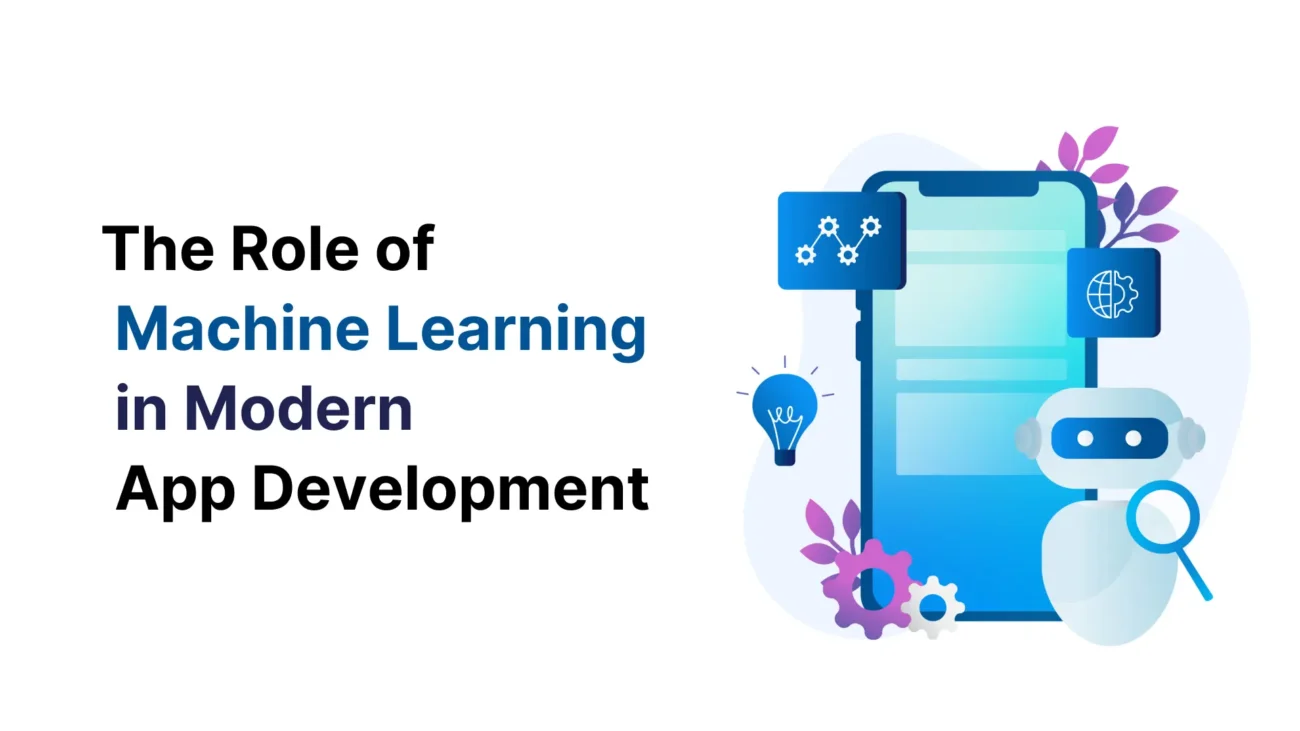In today’s digital era, Machine Learning is not just a buzzword—it’s a transformative force in modern app development. From predictive analytics to personalized recommendations, Machine Learning is shaping the way apps interact with users and make intelligent decisions. As businesses and developers aim to deliver more intuitive, responsive, and intelligent apps, integrating ML becomes a crucial part of the development process.
This blog explores the pivotal role Machine Learning plays in modern app development, its real-world applications, benefits, and best practices to follow. Whether you’re a developer, a business owner, or a tech enthusiast, understanding the influence of ML will help you stay ahead in the competitive digital landscape.
What is Machine Learning?
Machine Learning is a subset of artificial intelligence (AI) that enables systems to learn from data, identify patterns, and make decisions with minimal human intervention. Unlike traditional programming, where rules and logic are explicitly coded, ML models improve their performance over time by processing large volumes of data.
In the context of app development, this means apps can now adapt, optimize, and respond to user behavior in real-time. For example, a fitness app can suggest personalized workout routines, while a music streaming app can curate playlists based on listening habits—all thanks to Machine Learning.
Why Machine Learning Matters in Modern App Development
The demand for smarter and more efficient apps has made ML a key driver in app development. Here’s why it matters:
1. Enhanced User Experience
Machine Learning allows apps to personalize user interfaces and content delivery. By analyzing user data, preferences, and habits, apps can create customized experiences, improving engagement and retention.
2. Predictive Analytics
Apps powered by ML can forecast user behavior, trends, or needs. This helps businesses make data-driven decisions and offer timely suggestions, like recommending products in an e-commerce app.
3. Automation of Tasks
Machine Learning enables automation of repetitive tasks such as chat responses, data entry, and error detection. This reduces human effort and increases operational efficiency.
4. Real-Time Decision Making
Modern applications like navigation systems or trading platforms rely on real-time data. ML algorithms process this data on the fly, providing accurate and timely information.
Common Applications of Machine Learning in App Development
Modern apps across industries are leveraging ML to solve complex problems. Here are some common use cases:
1. Recommendation Systems
Apps like Netflix, Amazon, and Spotify use ML algorithms to suggest movies, products, or music based on user preferences and behavior.
2. Image and Voice Recognition
Voice assistants (like Siri or Google Assistant) and photo-tagging apps utilize Machine Learning to recognize voices and images with incredible accuracy.
3. Chatbots and Virtual Assistants
Many customer service apps integrate chatbots powered by ML to understand natural language and provide human-like responses.
4. Fraud Detection
Finance and banking apps use ML models to detect suspicious activities by analyzing transaction patterns in real-time.
5. Health and Fitness Tracking
Wearable and health apps use ML to monitor vital signs, suggest diets, and predict potential health issues.
Benefits of Using Machine Learning in App Development
Using ML in app development offers several advantages:
- Improved Personalization: Tailor the user experience for each individual.
- Higher Engagement: Increase user interaction through smarter features.
- Data-Driven Insights: Make strategic decisions based on predictive analytics.
- Scalability: Handle more users and data without compromising performance.
- Competitive Edge: Deliver innovative features that differentiate your app in the market.
Best Practices for Integrating Machine Learning into Your App
To make the most out of Machine Learning in app development, consider the following best practices:
1. Define Clear Goals
Start by identifying the problem you want to solve using ML – whether it’s improving recommendations, automating customer service, or detecting anomalies.
2. Choose the Right Algorithms
Select ML models based on your data and desired outcomes. Common algorithms include decision trees, neural networks, and support vector machines.
3. Use Quality Data
The success of Machine Learning depends heavily on data. Use clean, relevant, and sufficient data for training your models.
4. Focus on User Privacy
With great data comes great responsibility. Ensure that your app complies with GDPR, CCPA, and other data privacy regulations when handling user data.
5. Test and Optimize
Continuously monitor the performance of your Machine Learning models and update them as needed to maintain accuracy and relevance.
Challenges of Machine Learning in App Development
Despite its many benefits, integrating ML into apps is not without challenges:
- Data Privacy Concerns: Collecting and using user data responsibly is a significant challenge.
- High Computational Requirements: ML models can be resource-intensive.
- Model Accuracy: Poorly trained models can lead to inaccurate results.
- Complexity: Developing and maintaining ML features requires specialized skills.
Addressing these challenges requires a mix of technical expertise, ethical considerations, and user-centered design.
Future of App Development with Machine Learning
The future of app development will be heavily influenced by ML and AI. Emerging technologies like federated learning, edge computing, and neural architecture search are paving the way for even more advanced and efficient apps.
Soon, we’ll see hyper-personalized apps that anticipate user needs, apps that adapt to real-time environments, and even apps that co-develop themselves through intelligent feedback loops.
Investing in ML today means setting your app up for long-term success in a rapidly evolving digital world.
Conclusion
Machine Learning is no longer optional for modern app development—it’s essential. It transforms static, one-size-fits-all applications into dynamic, intelligent platforms that offer superior user experiences and smarter automation.
By integrating Machine Learning into your development strategy, you can build apps that are not only efficient and scalable but also adaptive and future-ready.
Whether you’re launching a startup app or optimizing an existing platform, now is the time to harness the power of ML to stay competitive, innovative, and relevant in today’s tech-driven marketplace.


